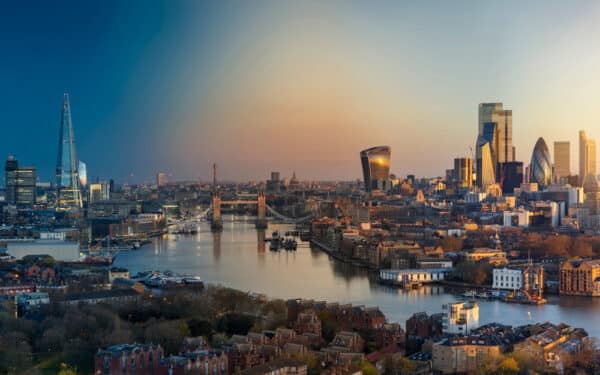Portugal. Atlanticist, Anglophile Portugal. How can you not love our oldest ally? In all Portugal, there is no more buzzing metropolis than Porto which, for centuries, has poured forth gallons of sweet fortified wines with confusingly English names on their labels: Cockburn, Croft, Graham, Osborne, Sandeman, Taylor. And in all that humming entrepôt, there is no better-named street than the Rua do Comércio do Porto, which leads up to a square dominated by a statue of Henry the Navigator, who opened whole new worlds to his subjects. And in that gorgeous square you will find the finest building in the city, the Palácio da Bolsa, a Palladian marvel, seat of the Chamber of Commerce. And in that temple to trade is a courtroom, decorated with murals celebrating various kinds of local economic activity: viticulture, paper-making, metalwork. And among those exquisite murals is an image of Justice spreading forth her arms to protect Commerce, Industry and Agriculture. Secure property rights, the artist was telling us, are the basis of an impartial legal system.
You can probably guess where I’m going with this. The glories of Porto came from open markets, and the burghers of that industrious city knew it. Trade was not simply the way they paid for the good things in life; it was itself a good thing. It raised living standards for the poor. It replaced oligarchy with meritocracy. It brought nations together in peace. It allowed new ideas and new technologies to cross-fertilise.
If the nineteenth–century builders of the Palácio da Bolsa could be transported to our present age, they would at first delight in the vindication of their beliefs. Free trade has lifted our species to a level of health and happiness which they could barely have imagined. The number of people living in extreme poverty has fallen from 36 per cent in 1990 to 8 per cent today. More than 90 per cent of girls now complete primary education. Life expectancy rose during the twentieth century from 49 to 71.
So where, those respectable, frock-coated men would ask, are your era’s monuments to free trade? We stood at the beginning of the great liberalisation, but you are the fullest beneficiaries! Your generation has conquered hunger and ignorance through free exchange! Surely you must revere open markets with an almost religious awe!
With some embarrassed throat-clearing, we would tell them about the US presidential election, and about the massive anti-TTIP demonstrations, and about the Occupy crowd, and their eyes would widen above their magnificent facial hair. It’s not just that they wouldn’t understand why people were protesting against global enrichment, though that would be bewildering enough. No, their real puzzlement would come from seeing that free trade, always a radical cause, had somehow come to be the opposite.
In nineteenth-century Portugal, as in contemporary Great Britain, support for free trade was a great liberal crusade. It was supported, by and large, by people who wanted to end the privileges of the church, the Crown and the aristocracy, to give education and equal opportunities to the masses, to offer cheap food to the poor rather than subsidies to wealthy landowners.
Yet, somehow, in our generation, that alignment has been reversed. Free trade is now seen, especially by young people, as something that lets greedy corporations exploit cheap labour, as something that benefits white people in developed countries at the expense of brown people in sweatshops. It is, on the face of it, the most bizarre of reversals. The truth is that every tax, every tariff, every restriction, ends up hurting the little guy in order to privilege some vested interest. But that truth is so far from the starting assumptions of many youngsters that we need to make the case again from first principles.
And that’s what I’m doing in Portugal, in Porto, in the Palácio da Bolsa. I’m speaking to 200 young people at the 2016 Freedom Summit, organised by one of my favourite organisations, European Young Conservatives. The utilitarian case for free trade is not enough. We need to recapture the moral force of its Victorian advocates who saw it as, in the phrase of the Radical MP Richard Cobden, “God’s diplomacy”.
I’m delighted that Liam Fox, the first UK trade minister for 43 years with the power to discuss trade deals, is speaking at this same event. Liam knows in his bones that leaving the EU offers Britain the chance to become, as Theresa May puts it, “the global leader in free trade”. We can be the first large, developed economy to open our markets across the board, helping developing countries while cutting bills for the lowest-income families in Britain.
To win that argument, though, we need to make the case for unrestricted commerce, as its earlier advocates did, in the kind of ethical language that the Occupy crowd will hear. Free trade is the ultimate instrument of poverty alleviation, conflict resolution and social justice. Our campaign starts here.



